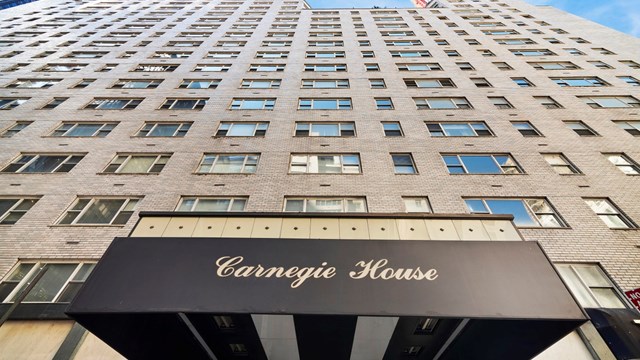Everybody complains about money. It doesn't matter if you're a millionaire or just getting by from paycheck to paycheck--everyone is on the lookout for money saving possibilities.
The same holds true for co-op and condo owners and shareholders. Co-ops and condos aren't just buildings--they're businesses--but boards sometimes don't think that way. They waste money, and don't take advantage of some very simple ways to save shareholders some dollars. From cutting down on energy use to ferreting out wasteful spending in the annual budget, there are lots of ways boards and management can work together to fortify the bottom line.
"I think it's important to make sure you go through a complete budgeting process and make sure you outline the strategy of where you are headed in the next year or two," says Marc Taub of ERE LLP, a tax consulting firm based in Manhattan. "This is up to the board and the managing agents. Sometimes it's not so much losing money, but knowing where you are going to spend your money."
It's important for board members to explore all options available and not just make quick decisions based on what's easiest. They should assess ways of saving money as a team and think about what's best for the building as a whole.
When thinking about money-saving ideas, Jay Novet, of Budget Saving Strategics in Great Neck offers a key component: imagination.
"All properties are unique," says Novet, "and harnessing the solutions brought by a keen imagination are probably the single best tool for saving money. Time is often a commodity in short supply for many board members. Our firm is often contacted to develop imaginative ways to locate and save money in overlooked areas, especially entering with a fresh-yet-professional perspective."
According to Richard Montanye of Marin & Montanye LLP, a CPA firm based in Roslyn, there are a number of mistakes that boards often make that can end up costing their building money.
"The most overlooked one is in maximizing the use of staff for repairs instead of hiring outside vendors," Montanye says. The most common mistake is probably refinancing mortgages just to reduce interest rates--without assessing capital needs during the term of the new mortgage."
Properly and professionally addressing mortgage refinancing is a very significant issue. Unfortunately, not having experienced financial people on their team to help negotiate terms can put a board at a very serious disadvantage.
"If all aspects aren't addressed in this manner, the resulting mortgage terms have the potential over time to overwhelm a property's cash flow," says Novet. "A mortgage's compounding effect over time can easily cause the size of the original mortgage to snowball from the penalty fees banks' frequently charge. Also, balloon mortgages are rarely reduced when properties return to the bank for additional liquidity."
Another area where some experts believe that boards spend too much money is that of professional fees. Frivolous lawsuits, for example, often wind up costing more money than the result would be worth.
"You see it all the time," says Taub. "They spend too much money on legal fees. You have to make sure you know what you're buying, and not get into major lawsuits and lose track of why you're doing it. Sometimes it's better to cut your losses."
Taub also agrees that repairs are an area where money can be saved. Not just in having them done in-house, but by not getting the most for your money. "When you're doing a major project, it's important to plan it out and getting the right experts in before hand so there are no problems."
"You need to stay on top of repairs and make sure you get the right price, but price isn't always the denominator with figuring all this out," Taub continues. "Make sure you get a quality job the first time. I think people sometimes fix things cheaply instead of doing things right the first time. Boards say, 'Let's just fix it,' rather than realizing why it's broken and actually curing the problem."
It's important for building boards and management to reassess their budget and operating expenses/practices to look for savings and restrict overspending. Montanye says this should be done continually--not just once a year.
"A board member should routinely study the management report to determine the status of collections and all disbursements and unpaid bills to make sure bills are paid properly for work that was completed properly--and to make sure that invoices are paid on a timely basis," Montanye says. "He or she should then report to the board on a monthly basis and advise them of any variances or concerns."
Usually the treasurer--along with the board president--will be in charge of policing the finances. The managing agent has an interest also, but the board has primary responsibility. Taub recommends that the treasurer reassess the budget twice a year to make sure your building isn't overextending itself.
Montanye cites five key points a board/management team should examine for money-saving opportunities.
1) Competitive bidding for insurance coverage.
2) Consistent real estate tax assessment protests and constant follow-up with the certiorari counsel handling those protests.
3) Fuel management and heating system upgrades to save fuel.
4) Monitoring payroll for abusive overtime and to maximize staff during vacation periods.
5) Maximizing the use of staff for routine building repairs.
By adopting these money-saving policies, Montanye says, it will be welcomed by everyone. "Hopefully it will stabilize the buildings finances to avoid surprises and assessments, and also keep the maintenance charges as low as possible while maintaining building standards," he says.
If a building is looking to save money and needs help, there are some professional services available that can help a busy board get the most from their budget. The Council of New York Cooperatives and Condominiums (CNYC) as well as the Federation of New York Housing Cooperatives and Condominiums (FNYHC) both offer excellent courses for board member training. The city's Department of Housing Preservation and Development (HPD) also offers courses on building management, finance, and tenant relations, and building systems.
"The building's independent accountant is normally in a good position to identify waste, as well as the managing agent," Taub says.
Novet's company does just that. "Our firm does an on-site audit where we examine the property on behalf of the board," Novet says. "From that audit, we present a report to the board with the appropriate findings."
Taub also recommends keeping an eye out for telltale signs of waste or financial mismanagement. This could be as simple as reviewing past documents and paying attention to the bottom line.
"Going way over budget on things is a warning sign," Taub says. "Look at comparisons from year to year or period to period and see if numbers are getting out of control."
According to the professionals, in most homes, 60 to 80 percent of the budget is already fixed. Between mortgage, taxes, insurance, heating and fuel, there may not seem like there's much you can do in terms of saving money. True, Con Ed is not going to be negotiating with you, but there's still some wiggle-room when it comes to utilities and other operating expenses.
According to utility expert Jason Boker of Metropolitan Refunds in Long Beach, money can be saved on energy and gas. A lot of buildings are taking advantage of energy deregulation and changing their energy and gas suppliers to deregulated companies, which may charge a little less.
"In terms of electric and gas, you can even look for historical errors in your bills," says Boker. "These big companies sometimes make mistakes, and if they add up year after year, they can create a lot of savings to property owners," says Boker. "There are also ways to purchase the commodity itself from a deregulated entity. There is a waiver of sales tax, so there is a tax savings. The companies also will charge a little less than a company like Con Ed."
Boker also says that money can be saved on water if you check for leaks and waste on the fixtures in the building and that can save money in the long run.
What could be better than building up shareholder equity and maintaining apartment liquidity by having a strong financial statement? Every building has it own unique financial situation and limits--but with creativity and attention to detail, any board and management team can come up with ways to save their shareholders money.







Leave a Comment